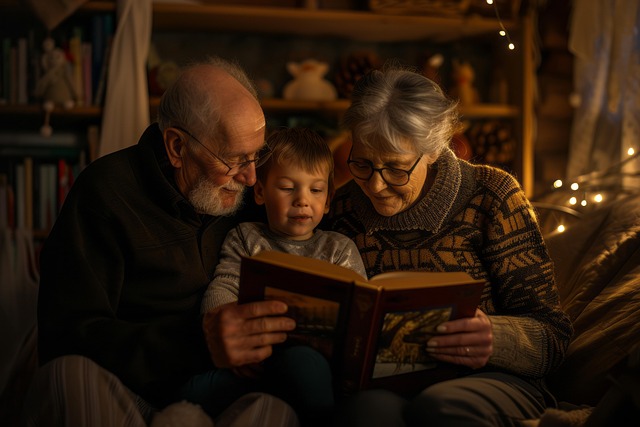In Oregon, grandparental rights are legally protected, allowing grandparents to maintain a significant bond with their grandchildren through visitation, custody, and access to information. Grandparents can safeguard their rights by seeking court orders, mediation, or legal counsel to establish tailored visitation schedules. Courts prioritize the best interests of children while recognizing the role grandparents play in their lives, balancing family stability and meaningful relationships. Legal aid organizations, bar associations, support groups, and community centers offer resources to assist grandparents navigating these protections.
In Oregon, recognizing and protecting grandparental rights is essential for maintaining strong family ties. This article explores the intricate legal landscape surrounding these rights, offering guidance for grandparents seeking protection. We delve into the state’s laws, including understanding visitation rights, the court’s involvement in grandparent cases, and the best interest of the child as a key consideration. Additionally, we provide resources for navigating challenges, ensuring grandparents can assert their legal protections effectively.
- Understanding Grandparental Rights in Oregon
- Legal Routes to Protecting Visitation Rights
- The Role of Courts in Grandparent Cases
- Evidence and Best Interest of the Child
- Resources for Grandparents Facing Challenges
Understanding Grandparental Rights in Oregon

In Oregon, grandparental rights are recognized and protected by law, allowing grandparents to maintain a significant relationship with their grandchildren. These rights, while important, can be vulnerable in certain situations. Understanding one’s legal protections is crucial for ensuring that the bond between grandparents and grandchildren remains strong. Grandparental rights legal protection involves various aspects, such as visitation, custody, and access to information about the grandchild’s well-being.
Oregon laws strive to balance the interests of both parents and grandparents, aiming to foster a stable environment for all family members involved. It’s essential for grandparents to be aware of their rights and the legal avenues available to protect them, especially when facing challenges related to custody or visitation. Familiarizing oneself with Oregon’s family law code and seeking legal counsel can empower grandparents to navigate the system effectively.
Legal Routes to Protecting Visitation Rights

In Oregon, there are several legal routes available to protect grandparental rights and ensure meaningful visitation with grandchildren. One primary approach involves seeking a court order that establishes specific visitation privileges and schedules. This process begins by filing a petition in the appropriate family court, where a judge can assess the situation and make decisions tailored to the best interests of the child and the grandparents.
Additionally, Oregon law recognizes the importance of familial connections and provides avenues for mediation and alternative dispute resolution. Grandparents can collaborate with their adult children (the parents of the grandchildren) or involve legal professionals specializing in family law to negotiate a mutually agreeable visitation plan. These methods offer less adversarial ways to protect grandparental rights while maintaining harmonious relationships within the family unit.
The Role of Courts in Grandparent Cases

In Oregon, courts play a pivotal role in protecting and adjudicating grandparental rights. When disputes arise regarding visitation or custody of grandchildren, family law courts step in to ensure the best interests of the child are upheld while also considering the significant role that grandparents can play in a child’s life. The legal system provides a framework for grandparents to seek legal protection and establish their rights through petitions, hearings, and subsequent orders.
Oregon laws recognize the unique bond between grandparents and grandchildren, and courts carefully navigate these cases with sensitivity. They evaluate factors such as the grandchild’s well-being, the grandparent’s relationship with the child, and any barriers to visitation or custody. By balancing these considerations, the courts aim to create a legal environment that fosters meaningful relationships while maintaining the stability and security of the family unit.
Evidence and Best Interest of the Child

In Oregon, protecting grandparental rights involves presenting compelling evidence and demonstrating the best interest of the child. Courts carefully consider the unique bond between grandparents and grandchildren when deciding custody or visitation matters. Evidence can include affidavits, character references, and any documentation showcasing the positive impact of grandparent-grandchild relationships. The best interest of the child standard guides these decisions, ensuring that any legal protection for grandparental rights balances the child’s needs with the existing family dynamics.
Grandparents seeking legal protection must be able to show that their involvement is in the child’s best interests, considering factors like emotional well-being, stability, and the overall health of the relationship. Presenting a strong case through legal counsel experienced in family law can significantly influence the outcome, ensuring grandparents’ rights are upheld while prioritizing the welfare of the child.
Resources for Grandparents Facing Challenges

Grandparents facing challenges with regard to their grandparental rights can find numerous resources within the Oregon legal system. Legal aid organizations, such as the Oregon Law Help website, offer free or low-cost legal services tailored for grandparents. These services provide guidance on navigating complex family law issues and understanding one’s rights under state laws that protect grandparental relationships.
Additionally, local bar associations often have referral programs that connect grandparents with qualified attorneys specializing in family law. Support groups and community centers dedicated to family matters can also be invaluable resources, offering a safe space to share experiences, gain insights from others facing similar challenges, and learn about available legal protections for grandparental rights.






